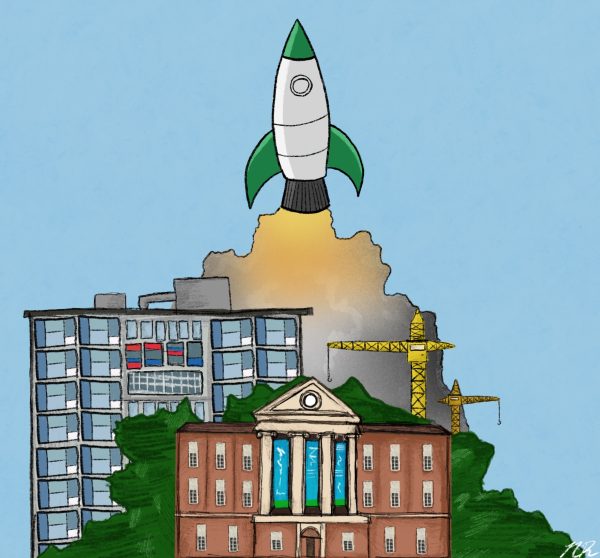
On Sept. 12, at around 6:12 a.m. EST, the SpaceX spacecraft Polaris Dawn depressurized and exposed its passengers to space, allowing them to commence the first commerical space walk.
The takeoff of a commercial space industry comes a year after Tulane University developed its Space Law program, following a $1 million donation from law school alumna Darleen Jacobs.
Paulo Goes, director of the Tulane University A. B. Freeman School of Business, is looking towards the future to the impact of space on the economy. “We are seeing a rapid move towards the concept of the ‘business of space,’” he said.
The passengers of the Polaris Dawn were its financer and Shift4 Payments CEO Jared Isaacman, his close friend former U.S. Air Force pilot Scott “Kidd” Poteet and two SpaceX engineers Anna Menon and Sarah Gillis.
“From space tourism to mining of asteroids and even other planets, there are real opportunities that at present are probably still far away. Having the private sector actively involved will accelerate the development of innovations that will support this new era of space exploration,” Goes said.
Hridesh Rajan, dean for the Tulane School of Science and Engineering, believes this is a huge opportunity for Tulane. “This event shows that we are making rapid progress toward that goal. Space science and engineering is an important and emerging transdisciplinary area that can build on Tulane and SSE’s strengths.”
Isabella Kulstad, president of the SSE student government, believes the expansion of the commercial space industry should represent an expansion in investment in space sciences at Tulane. “We 100% do need more allocation of resources towards that,” she said. “We do still have a lot of our chemical engineers and our biomedical engineers who are being trained in similar resources that are allowing them to eventually scale into that field.”
Kristen Ivey, president of the Tulane Space Law Society at Tulane Law School, believes the biggest legal risk with commercial space travel is civilian injury or death.
“Sending people into space requires detailed planning and there is always the risk that something could go wrong. I anticipate seeing a lot more civil suits and criminal charges resulting from space flights gone wrong.” she said. “Having the incidents occur in space will offer a new twist to these cases, and their decisions will further develop the field of space law.”
Ivey believes students and professors will see brand new opportunities in legal research. “There are likely plenty of scholars and professionals who have ideas for how cases and regulation concerning space law should be decided,” she said. “The Space Law Society is highly interested in current events. We are getting the opportunity to witness the start of an industry that is likely to boom.”
Two new space law mini-courses offered at Tulane Law School will kick off this new program: Space Law: Jurisdiction of International Treaties and Space Law: Property, Tort, and the Environment.



